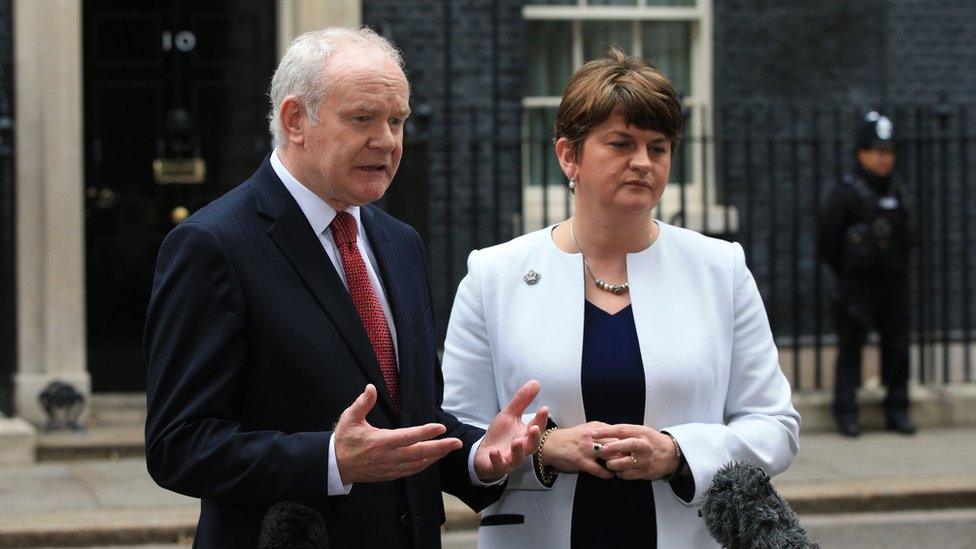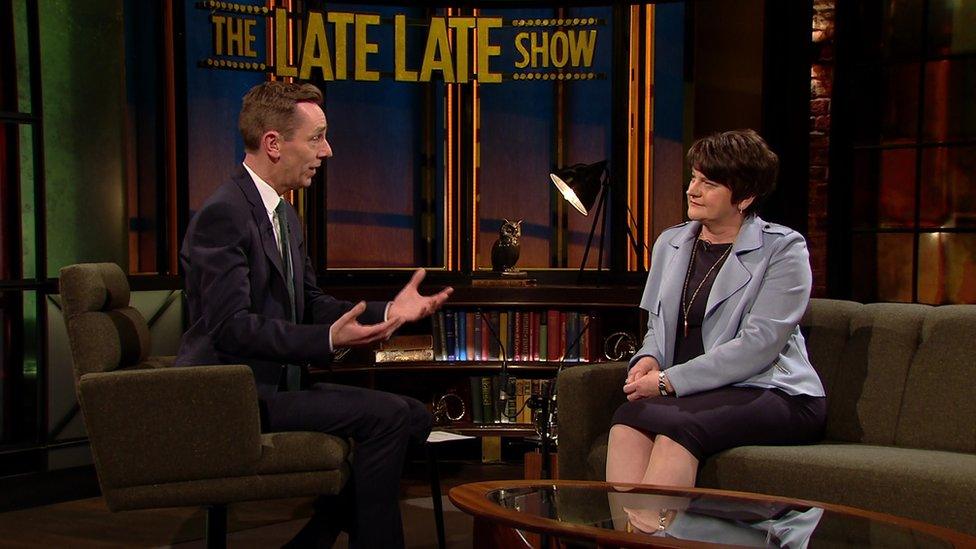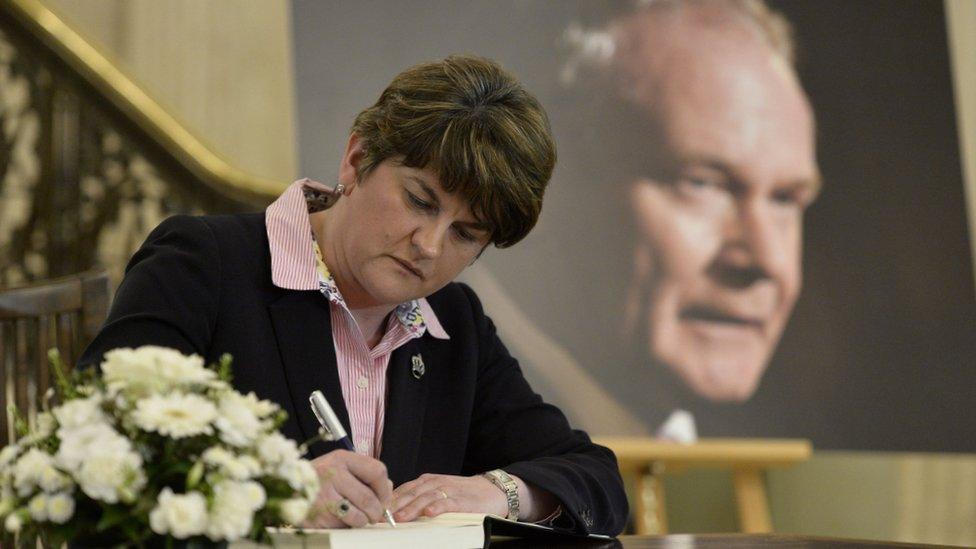Arlene Foster 'lost friends' after attending Martin McGuinness funeral
- Published

Martin McGuinness and Arlene Foster led the Stormont executive for just over a year
First Minister Arlene Foster has said she lost friends after attending the funeral of the late Deputy First Minister Martin McGuinness.
Sinn Féin's Mr McGuinness died in 2017 after suffering from a heart condition.
Mrs Foster, the Democratic Unionist Party (DUP) leader, was his partner in Northern Ireland's power-sharing government until a bitter row collapsed the executive in January that year.
She received a round of applause when she entered the church for his funeral.
DUP leader Arlene Foster applauded as she enters the church for Martin McGuinness' funeral
The first minister appeared on The Late Late Show on Irish national broadcaster RTÉ on Friday night to mark the UK's exit from the EU and she told the programme she wanted to reassure people that Northern Ireland and the Republic of Ireland would continue to be neighbours.
Although Mr McGuinness spent much of his political career serving in the Stormont executive as deputy first minister, in his earlier years he had been a senior commander within the Provisional IRA.
Mrs Foster was asked if she found it difficult to attend his funeral, given his involvement in the Northern Ireland conflict, which came to be known as the Troubles.
She said: "I wasn't just going as Arlene Foster - I was going as the former first minister.
"It was absolutely the right thing to do - there were a lot of innocent victims who felt very strongly and I lost friends over going but I still believe it was the right thing to do."

Arlene Foster appeared on Ryan Tubridy's The Late Late Show on Friday
She added that it was difficult because they were people she had known for a long time but she understood they took a different view than her.
"I took the view I had worked with him in government, served with him - as a leader you have things to do you would not do as an ordinary citizen and I had to do it," she said.
Mrs Foster described it as "encouraging" that she received a round of applause when she entered the church for the funeral service.
"I was apprehensive going to the funeral because I didn't know what sort of a reception I was going to get," she said.
"The executive was down, we'd just had a very difficult election - it was very polarised - but I have to say I was welcomed very warmly."
- Published23 March 2017
